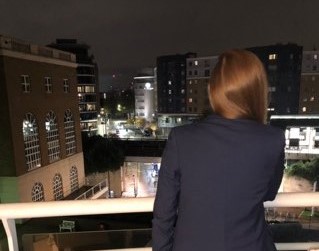Autistic people can
In 2017 (at 25) I was diagnosed as autistic. Like many newly diagnosed autistic people I took to the internet to see what it was all about and learn any information I could about autism.
Two things stuck with me. The first was that only 16% of autistic adults are in full time employment. 16%. The very figure that haunted my education to employment transition. The overwhelming fact that I was fighting back against the odds to hold down my job, wondering if failure was inevitable.
The second was that a very small number of autistic adults ever got married, often quoted at 5%. So, I was told I had a 1 in 20 chance of being married and a 4 in 25 chance of holding down a job.
Being the stubborn person I was, that wanted nothing more than to be an accountant and have a happy home life – I set out to prove the statistics wrong. As I got more involved with the autistic community it began to strike me that it wasn’t just the statistics claiming these inevitable fall downs. The signs were everywhere. Shock and surprise when I said I worked full time, assumptions that autistic adults are single and not in a relationship.
People that learn I am autistic and am a full-time accountant living independently throw around words like ‘inspiration’ and how I have ‘overcome autism’. It is not healthy to tell someone they will never succeed and then congratulate them when they put themselves through far too much to prove they can.
It was this attitude that led me to pushing myself far too hard at the bank. I left it too late to realise that the bank wasn’t the right job for me. It took me losing the ability to walk to realise leaving wasn’t failure. I went on to find a brilliant job that supports me. The difference is at the bank I wanted to do everything everyone else could. While the world told me I couldn’t, I became obsessed with proving that I could. I didn’t want time out, I didn’t want adjustments, I wanted to prove that I was capable.
I of course went on to realise that this was unhealthy. Telling disabled people, they need to fight harder, not ask for help and find a way to cope – is not healthy. Until recently I thought I had found peace with relying on a support network, accepted it is okay to do that. But as I eye up that second statistic, I realise I need to work on this a lot more.
Everybody needs help sometimes. If 2020 has proven anything it is that we are stronger together, stronger supporting each other. It does not define a disabled person to need help, it defines being human. The difference in autistic life is while a neurotypical might need a lift to their car or help with childcare, I just might need someone to make sure I eat tea and take time out.
As I try to unlearn the ingrained need to prove I can do everything myself I implore you to not give these signals to your autistic loved ones. Statistics are just statistics. Nobody is destined to fail; nobody is a lost cause. Please don’t write us off without giving us a chance. Please don’t allow us to feel a burden because we may need help in different ways to other people.
Nobody is destined to fail. Certainly not for being autistic.
Found this blog helpful? You can support my writing and say thanks by buying me a coffee 🙂
